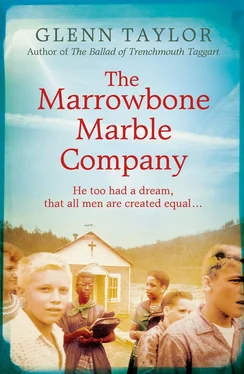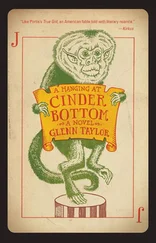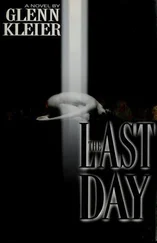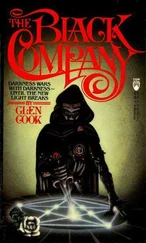When the boy fell asleep, Ledford set him on a cushioned desk chair from the old house. He began unpacking the last of the boxes. Attic Junk it read on the side. In the box, an old black album of photographs popped and cracked when he opened it. With each turned page, it shed little black corner frames. Ledford gathered them as they fell. The photographs themselves were lined and chipped with age. They were not in the order they’d been intended. Their look made them his daddy’s people, the Ledfords of Mingo, mostly tall and thin. Unsmiling faces and cheekbones that cast shadows. There were dates in faded pencil on the backs of some. Names like Oliver and Homer and Eliza and Wilhelmina. In one photograph, Ledford’s daddy swung on a rope hung from a tree limb. He looked to be about six, his T-shirt dirty, loose around the neck. His head a blur of black hair and bared teeth.
Ledford picked up the other album. There wasn’t much inside. Four pages filled out of twenty. An old woman who looked to be part Indian sat in a rocking chair and smoked a clay pipe. There was no name or date on the back. A baby picture of a child with eyes big and dark like his own children. On the back, somebody had written Bonecutter .
He picked up another book, leatherbound. It was small but thick, the size of a good Bible. It was his daddy’s batch book from the early days at Mann Glass. Pages were organized by color. White Batch and Opal and Best Opal and Shade Batch White. There were penciled-in measurements of hundreds of pounds of sand and soda. Lead and arsenic. Ounces counted for borax and manganese. Bones. Bill Ledford had figured out how to make a transparent green by adding copper scabs. Every shade of green may be obtained , he wrote.
In the back pages, the batch book became an account of disparate times in his life. Bill Ledford had written in it almost daily, it seemed, from the years 1916 to 1925. There were passages about his days playing ball in the Blue Ridge League for the Martinsburg Blue Sox.
Lefty Jamison threw at my head today on account of me running off at the mouth last night when the likker oiled me up. I believe I had poked at his stomack to show how fat it was, and I may have called him a bench blanket.
The baby shifted and grunted on the seat cushion. Ledford eyed him a minute and knew he wasn’t long for sleep. He flipped fast through the journal’s pages, looking for something. In all those years alone in his house, he’d never been able to look. He’d feared doing so would make everything worse than it already was. But Ledford was the father now, and fear had been replaced by the single-minded need to keep his wife and children above ground. He’d protect them all.
On the next-to-last page the handwriting was easier to read, as if written slow. It read,
January 12, 1924, I am twenty-six today. Last night I dreamed the same dream again. I can’t pick my feet up so I look down and I’ve got no feet. They are inside the ground. I fall forword and my legs bend the wrong way. A cracking sound and a feeling of my bones breaking. I’m unable to put here in words what it is, but it is bad. Then comes the roaring sound like a glass furnace and I’m holding my punty rod in one hand and my blowpipe in the other. I get to my knees and I’m all cut up as I’ve been laying on cullet. It is raining and I have to keep my eyes shut. That’s what the voice is hollering at me, not to open my eyes up. But I do, to see who’s hollering in that awful familur voice, and when I look, it is our littlest one. Loyal. Nearly two now. And he puts the fear of God in me because his mouth don’t open when he talks and his hands are afire.
Willy screamed out sudden. Ledford dropped the book back in the box and stood. The hair on his arms and neck was pricked and he couldn’t get enough saliva to swallow. He held little Willy and felt his own heart race against the child’s side, pressed to him. He could not understand what he had just read. The mind was not made to know such words as those from his daddy’s pencil. Ledford breathed deep and looked out the single-pane window. The ground there was warming, sunrise gathering in its well. He watched a dwarf spider navigate the glass and wondered why he opened the books. He’d been getting by all right as of late, drinking less on the advice of Don Staples. Dreams visited Ledford with less frequency, their horrors dulled. But what he’d read had stirred anew the unquiet. He looked at his boy, no longer screaming but not yet settled, his eyes like those in the photographs.
S EVEN-CARD STUDwas the only game allowed in the home of Don Staples. Straight poker and five-card draw had no place. If a man tried to force such a variation, Staples would walk away from the table and hit the light switch on his way to bed. The group had changed over the years but had never topped five men. Its exclusivity was born in the idea that those light on brains and nickels, while always welcome in Staples’ office or home, were not permitted to pull a chair to his round-top mahogany card table. In the fall of 1947, the group was down to three: Don, his younger brother, Bob, and Ledford. An exception to custom was made on the final Friday of October, Halloween night, when Ledford phoned ahead that Erminio Bacigalupo was passing through on his way back from Baltimore, and that he was a fine poker man. Staples said bring him.
Before they left the house, Rachel spoke very little to Erm. She had always mistrusted him, though not as much since her wedding night, when he’d told her, “Ledford is the brother I never had, and I’d take a bullet for him.” Still, when he was under her roof, she watched him, close.
In the basement, Ledford pulled Erm’s leather envelope from under the swastika quilt in the trunk. Erm opened it and pulled a hundreddollar bill from the stack. “For your trouble,” he said. “And if you want to double it, look at the over-under on Maryland tomorrow. Now let’s go play some poker.”
Staples’ house was small, dark inside. From the record player in the corner, Louis Armstrong’s “Big Butter and Egg Man” played. The acorn ceiling fixture gathered smoke from below.
Each of the card table’s four legs carried an ashtray. The men sat slouched over their elbows. They eyeballed the cards face up on the table and lifted the corner of those faced down. Ledford folded after Fifth Street, Bob after Sixth. Erm dealt in a manner bespeaking experience. The cards flipped from his finger and thumb and turned a singular revolution before landing flat. He was showing a pair of Jacks. Staples, a pair of sevens.
“Check,” Staples said. He tossed in a nickel, and down came Seventh Street. They showed their five and Erm took the pot, again.
Bob shook his head. He was ten years younger than Don, yet everything about them seemed identical—voice, movements, eyes, laugh. Bob was a less-wrinkled, clean-shaven version of his brother. He scooted his chair back. “I gotta hit the head,” he said.
“Magnifying glass is in the top bureau drawer,” Don said.
Erm laughed and raked in his dollar seventy-five.
Staples packed his pipe and lit it. “Ledford tells me you’ve recently married.”
“That’s right.” Erm’s nod was loose on the hinges, and his eyes were shrinking fast. “She’s a looker, but she’s goofy up top, you know?” He tapped his temple with a finger.
Staples laughed. “I know,” he said. “Ain’t we all?”
The clock on the wall read ten past midnight. They’d been playing for three hours. Ledford looked from the clock to his quarter-full rocks glass. He’d gone as easy as he could, but it was harder with Erm around.
The cornet sang a sad tune from the corner.
Читать дальше












